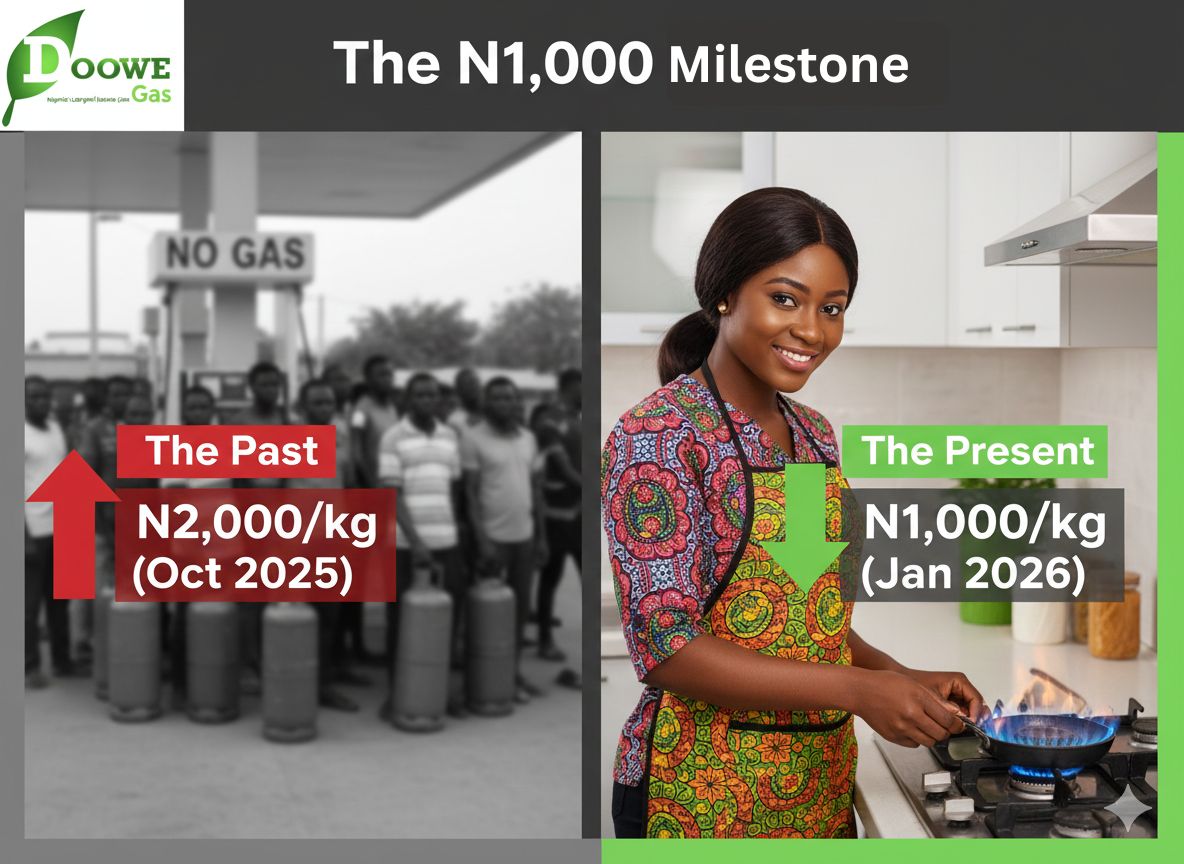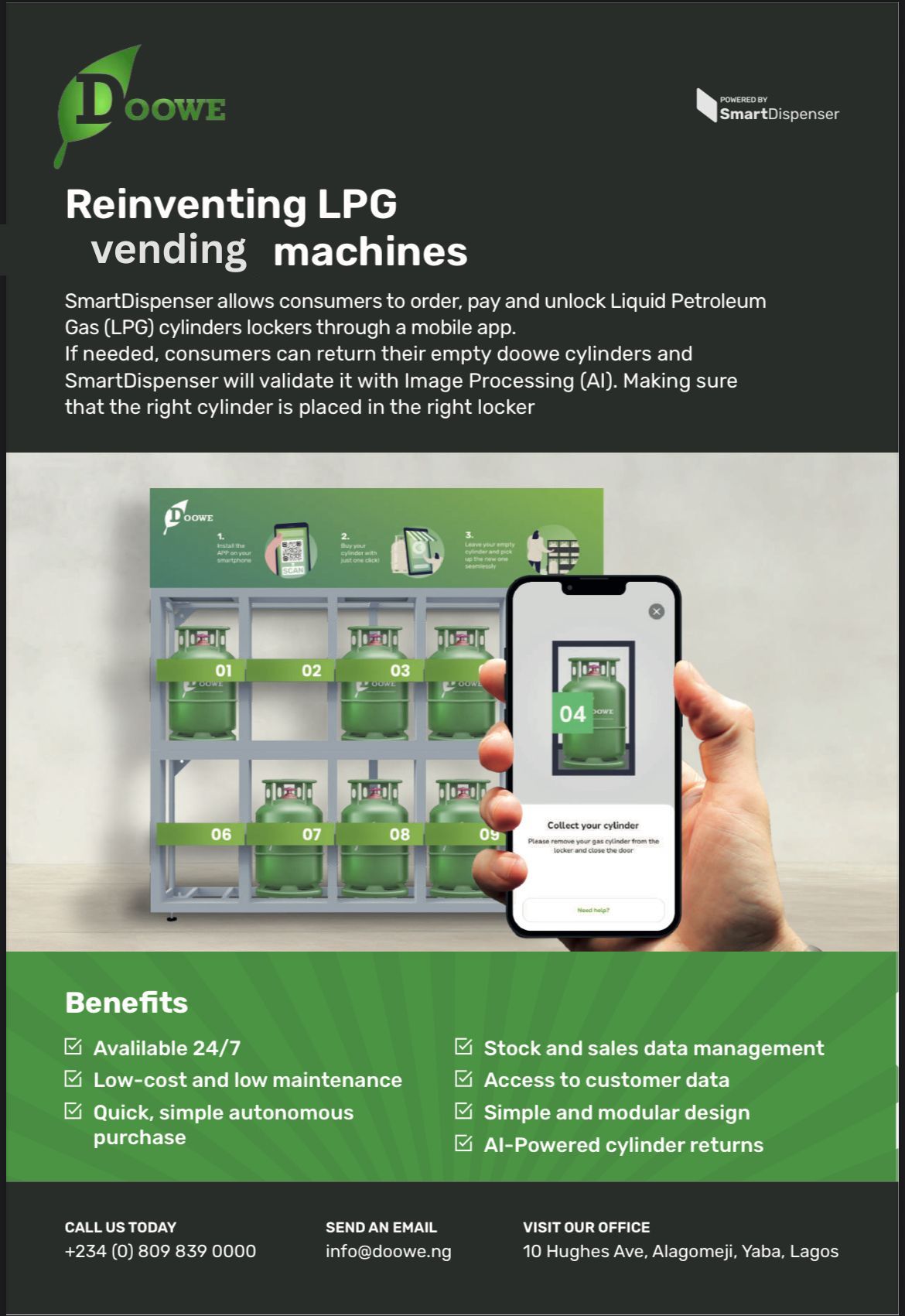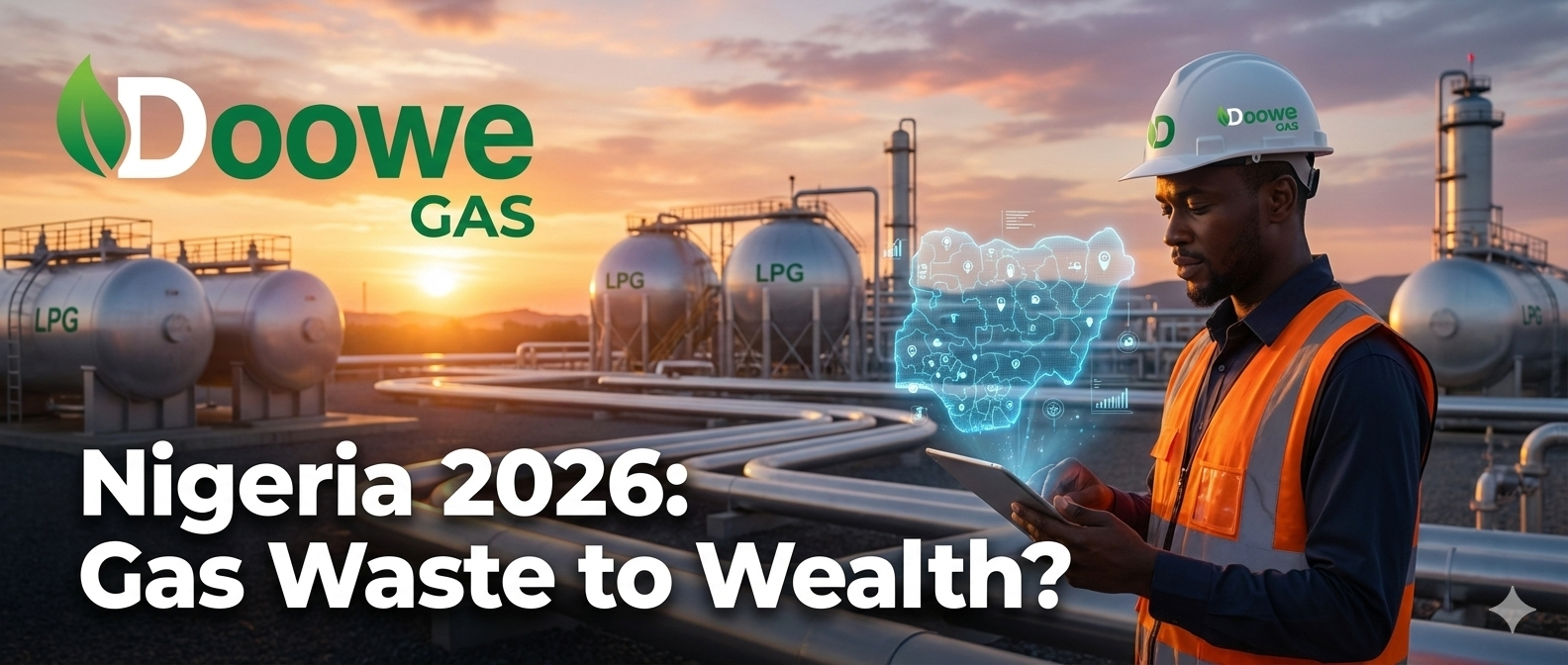As the largest economy and most populous nation in Africa, Nigeria stands at a critical energy crossroads. For decades, the country has been shackled by a heavy reliance on imported petrol and diesel, a dependency that drains vital foreign exchange, pollutes the environment, and constrains economic growth. In response, the government is championing a strategic pivot towards Compressed Natural Gas (CNG)—a cleaner, cheaper gaseous fuel. This transition represents more than a mere policy shift; it is a vital national imperative with the potential to redefine Nigeria’s energy landscape. However, the path to a CNG-powered future is fraught with challenges that demand urgent and strategic action.
The case for CNG is compelling, anchored in a triad of economic, environmental, and operational benefits. Economically, CNG offers a much-needed respite. With estimates suggesting cost savings of 20-30% compared to petrol and 30-40% compared to diesel, its adoption could significantly reduce the financial strain on both individual households and the national treasury. This is a crucial buffer against the inflationary pressures exacerbated by the removal of the fuel subsidy, putting money back into the pockets of Nigerians and freeing up billions in foreign exchange currently spent on fuel imports.
Environmentally, the shift is a step in the right direction. As a cleaner-burning fuel, CNG produces markedly fewer emissions than its liquid counterparts. The government’s claim that it could mitigate greenhouse gas emissions by up to 20% points to a tangible opportunity to improve urban air quality and align with global sustainability goals. Furthermore, for vehicle owners, CNG offers practical advantages: it leads to less engine wear and tear, reduces maintenance costs, and extends engine life, presenting a more efficient and reliable alternative for the transportation sector.
Initiatives like the Presidential Compressed Natural Gas Initiative (PCNGi) and partnerships with private firms to develop infrastructure and financing for vehicle conversions signal a welcome commitment. Yet, despite this political will and the evident benefits, the widespread adoption of CNG faces formidable barriers.
The most immediate obstacle is the stark lack of infrastructure. Nigeria currently has only a handful of CNG refueling stations, concentrated largely in urban centers. This sparse and uneven distribution creates a “chicken and egg” dilemma: consumers are hesitant to convert their vehicles without a reliable network of stations, and investors are reluctant to build stations without a critical mass of CNG vehicles. This infrastructure gap effectively sidelines a vast portion of the population, particularly those in rural areas, from the transition.
Compounding this is the prohibitive upfront cost of conversion. With prices ranging from N300,000 to N600,000 per vehicle, switching to CNG remains a distant dream for the average Nigerian. Without substantial financial incentives, this barrier will keep CNG as a luxury for the few rather than a viable option for the many. This challenge underscores a fundamental truth: possessing substantial natural gas reserves is not enough; it requires intentional investment and sound policy to translate this resource into tangible economic relief.
Furthermore, a significant information deficit and lingering safety concerns threaten to derail public acceptance. Many Nigerians are simply unaware of CNG’s benefits or are skeptical due to a lack of targeted education. This skepticism is often compounded by legitimate fears about safety, given CNG’s flammability. Recent CNG-related accidents have heightened these concerns, highlighting the non-negotiable need for stringent safety protocols, certified technicians, and public awareness campaigns to build trust in the technology.
For Nigeria’s CNG revolution to move from policy paper to palpable reality, a coordinated, multi-stakeholder approach is essential. The government must take the lead by deepening investment in core infrastructure. This means accelerating the rollout of refueling stations along major highways and in urban centers, while incentivizing private sector participation to ensure nationwide coverage.
Simultaneously, making conversion affordable is paramount. The government should introduce a robust package of incentives, including tax breaks, subsidies, and low-interest loans, to bring the cost of conversion within reach of the average motorist and commercial transport operators.
Finally, building public trust through education and safety enforcement is critical. A sustained nationwide awareness campaign is needed to clearly articulate the economic and environmental advantages of CNG. This must be coupled with the strict enforcement of safety standards for kits, installations, and refueling stations, ensuring that the transition is not only popular but also safe.
The journey to a CNG-powered Nigeria is a marathon, not a sprint. It demands more than just political announcements; it requires relentless execution, significant capital investment, and a steadfast commitment to public engagement. By tackling the infrastructure deficit, alleviating the financial burden on citizens, and prioritizing safety and awareness, Nigeria can unlock the immense potential of CNG. Success in this endeavor would mean more than just cheaper fuel; it would signal a decisive break from a burdensome past, fueling a more sustainable, self-reliant, and prosperous future for all Nigerians.
On other news,
Although, Nigeria is pursuing fiscal reforms to energize oil and gas sector, a new report has identified an absence of critical infrastructure especially in the country’s gas development sector.
The report suggests that Nigeria should outlay significant amount on funds for oil evacuation infrastructure for export and local refining.
In the report released by Renaissance Capital Africa, Nigeria would require between $17 billion and $29.3 billion to support its gas transition programme.
The company, a financial-services firm focused on investment banking and markets activities in Africa,
said that to support the progressive policy developments under implementation, infrastructure has been identified as a potential gap in the system, especially for the gas transition.
“We estimated a capital expenditure of $17.3 to $29.3 billion, excluding Dangote Refinery & Petrochemicals which has been completed, to support gas transition. Crude oil evacuation infrastructure for export and local refining is better placed for near term returns in our view,” it stated.
However, the report said that infrastructure developments are more complex because scattered reserves in the country require more infrastructure, increasing the upfront cost for evacuation. Besides, it stated that domestic manufacturing demand is currently low, stressing that without the demand side initiatives, gas will be channeled for export.
As for incentives for IOCs and local E&P companies to unlock value in gas production, it said that cost efficiency, shorter cash conversion circle, among others, remain key positives for the country.
“With economies of scale in existing fields, existing infrastructure can be repurposed for gas at a lower cost versus procuring new equipment for additional crude exploration, making it cheaper for existing E&Ps to process and sell CNG/LNG.
“Also, there’s a shorter cash conversion cycle from investing in gas processing on existing fields versus exploration. Funding interest is more inclined towards gas projects (and) increased government focus leading to policy changes and the expansion of use cases for domestic gas utilisation including power generation and manufacturing,” it added.
On the recent divestments in the oil sector, Renaissance Capital said the potential outcome of the acquisition by the indigenous players includes bankable projects for investors and local commercial banks, community development, and increasing capex for asset growth.
It stated that for additional context on asset growth where NNPC is the majority JV partner, its E&P partners are now up to date on its cash calls, in part due to the removal of subsidies and improved governance at NNPC.
“Looking ahead, we anticipate further divestments by IOCs and NNPC JVs, where we see a significant opportunity for local E&P players to acquire 10 oil wells holding 2,008 mmboe,” Rencap stated.
The outlook for Nigeria’s oil and gas sector, it said, remains broadly positive, supported by a combination of structural reforms, renewed investment momentum, and the gradual rebalancing of asset ownership.
“The ongoing divestment of onshore and shallow-water assets by international oil companies (IOCs) to indigenous players is reshaping the upstream landscape, transferring productive capacity to operators with a stronger local presence and operational agility.
“As these transactions conclude and capital commitments crystallise, production from previously underutilised fields is expected to recover, underpinning a steady improvement in output volumes.
“At the same time, the renewed focus on offshore developments, particularly in deepwater fields signals a potential second wave of upstream investment. With the Petroleum Industry Act (PIA) now providing fiscal clarity and more competitive terms, several long-stalled projects, including deepwater expansions and infill drilling campaigns, are being revisited.
“The steady rise in active rig counts above 40 units since mid-2025 reinforces this trend, reflecting both renewed investor confidence and a tangible pickup in drilling activity across multiple terrains,” it stated.
In the midstream segment, it stated that the commissioning of the Dangote Refinery marks a structural inflection point. Through the implementation of the Domestic Crude Supply Obligation (DCSO), the refinery, it said, is expected to secure steady feedstock supply, enabling Nigeria to significantly reduce its dependence on imported refined products.
Increased domestic refining capacity, coupled with improved pipeline and gas infrastructure is expected to enhance energy security, stabilise supply chains, and create fiscal savings through reduced import costs.
Although global oil prices are projected to soften in the medium term due to moderating demand and higher non-OPEC supply amidst geopolitical tensions, Nigeria’s rising production levels and enhanced operational efficiency, it pointed out, are likely to act as a buffer against price volatility.
“Furthermore, the shift toward gas development both for domestic power generation and export diversification offers an additional avenue for earnings resilience.
“Taken together, these dynamics suggest a more balanced and resilient oil and gas sector, with local participation deepening, midstream capacity expanding, and regulatory clarity under the PIA reinforcing investor confidence. Sustained execution on these fronts could position Nigeria’s petroleum industry for a gradual but durable recovery in both output and value creation,” the company added.
Besides, the report said that the trajectory of active rig count signals that the building blocks for growth are being put in place.
“ If maintained, this upward trend in drilling activity provides a credible pathway for Nigeria to not only meet but potentially exceed medium-term production targets (over 2mbpd by FY26e), reinforcing the narrative of a recovering and investable oil and gas sector”, it said.
Doowe – Powering Innovation. Energizing Africa.
👋 DooweGas is on a mission to ignite the future of energy, and we want YOU to be a part of it! Our YouTube channel is the place for in-depth analysis, expert interviews, and the latest breakthroughs for professionals, investors, and policymakers in the energy sector.
Why Subscribe NOW?
Exclusive Content: Get cutting-edge insights you won’t find anywhere else.
Expert Analysis: Understand the “why” and “how” behind the biggest energy stories.
Community: Join a growing network of passionate energy professionals.
Be a Pioneer: Help us build the ultimate resource for African energy intelligence!
✅ Discover innovative LPG solutions
✅ Learn how we’re powering homes & businesses sustainably
✅ Connect directly with our team
👉 Don’t miss this chance to experience the future of energy with Doowe Gas!
✨ Limited-Time Exclusive Offer for Our Next 900 Subscribers! ✨
To celebrate our journey to 1000, the next 900 people who subscribe to our channel will receive an exclusive, in-depth access to our research from DooweGas on “The Future of LPG in West Africa: Opportunities & Challenges,” absolutely FREE! This is invaluable for anyone in the energy space.
Join The DooweGas Mentorship Access By Doowe investment limited
Annual Access – DooweGas Mentorship WhatsApp Group
Unlock premium, year-round access to our exclusive community of serious gaspreneurs and experts.
What You Get:
Business insights from seasoned operators
Live Monthly Sessions: With industry leaders and DooweGas experts
Sales Strategies: Learn how to scale bulk sales, B2B, and cylinder tracking
Business Support: Ask questions, get feedback, and learn from real gaspreneurs
Group Referrals: Connect with reliable vendors, customers, and suppliers
Private Group Access: 24/7 interaction and guidance from mentors and alumni
How To Join And Take Advantage Of This Opportunity: Click: https://shorturl.at/vRq7w
Don’t miss out on this incredible opportunity to deepen your knowledge and get a valuable resource straight from Nigeria’s leading LPG retail company!
Join Our Gas Whatsapp Page
Send your number to : WhatsApp number : +2348134708634 to join and be a part of our energy journey.
Join the conversation on youtube. Get informed. Get empowered. Subscribe today!
➡️ Click here to subscribe and claim your FREE access: https://www.youtube.com/@doowegas/
Source : http://orientalnewsng.com/





